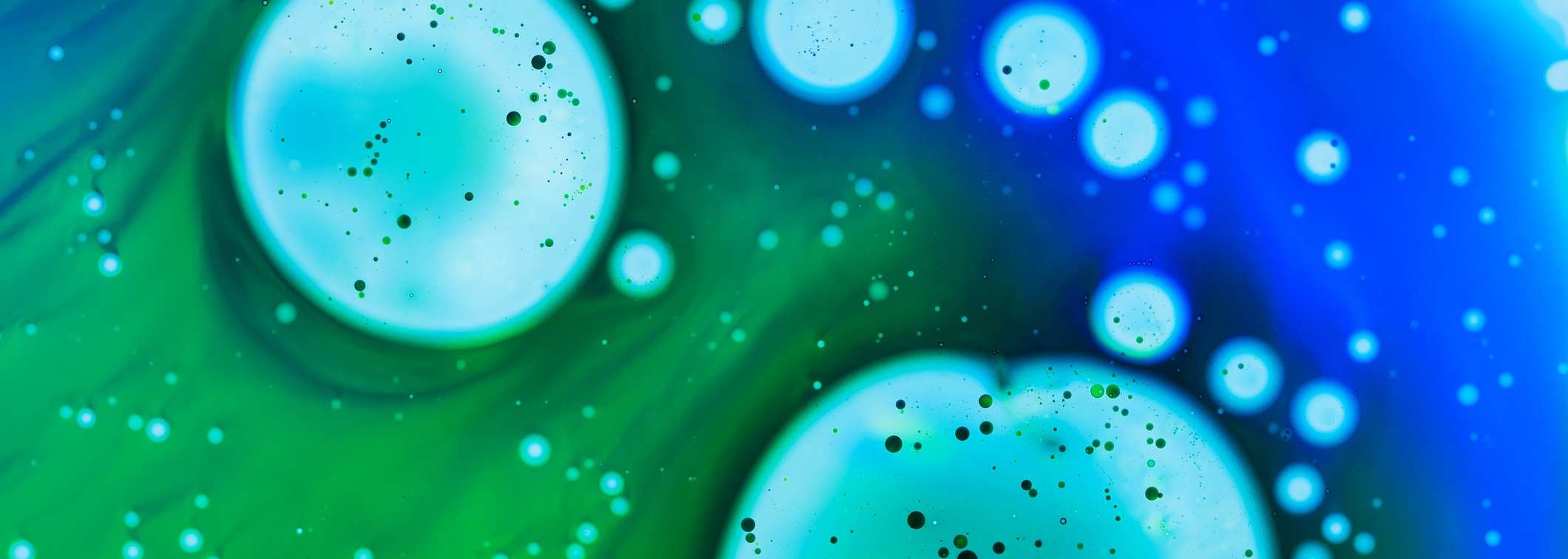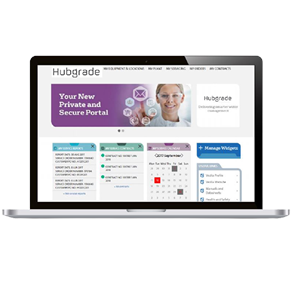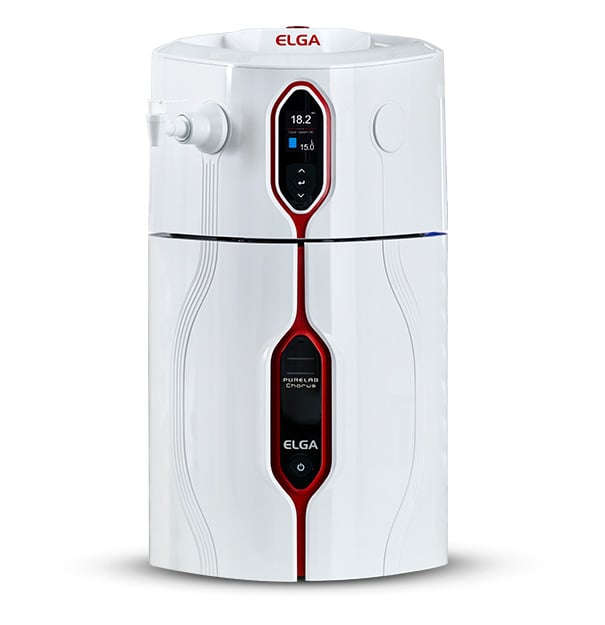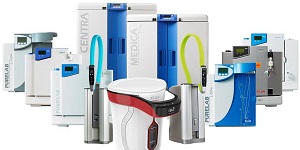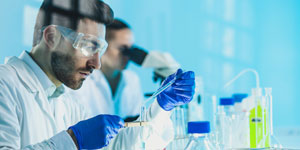General Laboratory Water

Virtually all chemical, analytical and biochemical laboratories use purified water for a number of routine background procedures which are required to run the lab effectively. General lab water covers the water used in these roles.
What is general lab water used for?
A major use of purified water is in glassware washing. This can require relatively high volumes delivered rapidly on demand. Heating baths are another common requirement for purified water. Microbiology labs need water to refill autoclaves, while steam generation is used for sterilization and clean-room humidification. Stills and ultra-pure water polishers also benefit from a purified water feed. Routine preparation of reagents and standards for non-trace work, along with general purpose chemical and physical testing, such as pH, are further suitable applications for general lab water.
In controlled labs the purity of the general lab water used for certain applications may be set by the regulatory authority.
Why would you use general lab water?
General lab water is used where water is required that has had most of the impurities in drinking water removed. Typically, this water will contain sub-ppm levels of ionic and organic impurities. Using this water avoids the variability, contamination and down-time associated with using drinking water but minimises the costs associated with producing higher purity water. Methodologies may also specify certain grades of water for certain operations.
What is the impact of water purity on general lab water?
Generally, the more sensitive the analyses being carried out the more critical is the purity of the water both for use in the analyses but also in ancillary roles such as water baths, humidification and, especially, glassware washing. Too many impurities in rinse water can degrade various aspects of laboratory work the cause of which can be difficult to trace.
What types of contaminants in general lab water can affect results?
Impurities of all types can affect general lab water.
1. Organic Compounds
The presence of organic compounds in any water used for general lab work can cause a number of problems.
2. Ions
Inorganic ions are the most abundant impurities in drinking water and can interfere in a number of ways. For example, salts, especially hardness, can form deposits in apparatus and pipe-work reducing the effectiveness of heaters
3. Bacteria and Particulates
Bacteria and particulates can, over time, build up within apparatus and cause drift and degrade components. Bacteria can also continuously produce interfering degradation products. This can be a particular problem as water of lower purity contains more nourishment for bacterial growth.
What are the water purity requirements for general lab water?
For most laboratory applications Type II/II+ water will be sufficient as shown in the table below. For high sensitive work Type I water is preferred even for glassware washing and sample preparation.
Application | Sensitivity Required | Resistivity (MΩ.cm) | TOC (ppb) | Filter (µm) | Bacteria (CFU/mL) | Endotoxin | Nuclease | Water Grade |
Glassware washing | General | >1 | <50 | <0.2 | <10 | NA | NA | Type II/II+ |
Steam generation | General | >1 | <50 | <0.2 | <10 | NA | NA | Type II/II+ |
Feed to Stills | Low | >0.05 | <500 | NA | NA | NA | NA | Type III |
Feed to pure water system | Low | >0.05 | <50 | NA | NA | NA | NA | Type III |
General | >1 | <10 | <0.2 | <10 | NA | NA | Type II/II+ | |
Sample & reagent prep. | General | >1 | <50 | <0.2 | <10 | NA | NA | Type II/II+ |
How does ELGA solve water purity problems for general lab water?
ELGA’s expertise and long-established reputation ensure that its experienced team can help customers to determine the particular water purity requirements for their applications. The Company offers a number of water purification systems that have been proved to meet the requirements for general lab water. Depending on volumes required and other lab applications, general lab water can be provided as a local dedicated system, as a larger centralised system feeding a number of points of use (to which polisher units could be fitted for higher purity requirements) or as a secondary supply from a two-quality water purification system. For example, the PURELAB Chorus 2+ provides economical type II water, for general lab use, while simultaneously supplying feed water to a bench-top PURELAB Chorus 1 point-of-use system which consistently delivers ultrapure water of 18.2 MΩ.cm (Type I).
Conclusion
For general lab water for most applications a water purification system producing Type II/II+ water would be highly suitable and economical. For high sensitivity applications where it is critical that the water used to prepare reagents, blanks, samples and standards does not introduce contamination, water of Type I is preferred.




